
16 Things to try if you’re falling asleep at work
By Jason Wooden, PhD | April 27, 2021
The reasons people fall asleep at work include poor sleep, nontraditional work shifts, tiring or repetitive tasks, medical issues, and medications.
To stay more alert, your options included getting more sleep, power naps, activity breaks, vitamins, healthy snacks, changes to your workspace, and a host of other remedies.
The many reasons we’re falling asleep at work
Feeling sleepy and struggling to stay awake on the job can be pretty frustrating.
In the US, two thirds of the labor force experience fatigue according to a National Safety Council survey. Depending on the occupation, an Amerisleep survey found that as many 70% admitted to snoozing on the job.
Feeling tired can make the workday less productive and enjoyable. For some jobs, it can be a safety issue.
If you’re operating heavy machinery, driving a vehicle, or flying an airplane, nodding off while on the job is not an option. Unfortunately, it happens with nearly half of truck drivers confessing to drifting off on long-haul trips.
There are many reasons people may struggle to stay awake at work. Unsurprisingly, poor sleep is one of the biggest issues since one in three people struggle with insomnia every night.
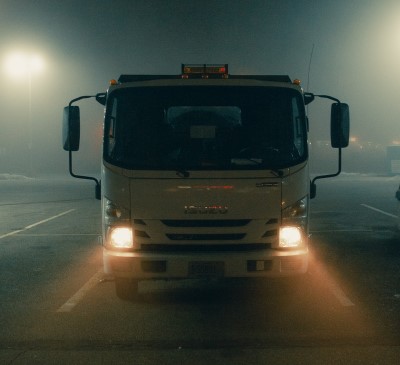
Among the most common issues are:
- long work hours
- odd work hours
- tiring work or tasks
- health issues
- medications
Regardless of why it’s happening to you, it’s all the same – grueling days (or nights).
It can put your job at risk.
It can put the safety of yourself and others at risk.
Since things are already stressful enough on the job, let’s look at what you can do avoid falling asleep at work.
What to try if you’re falling asleep at work
If you’re struggling to stay awake at work, it should be clear by now that you’re not the only one. Millions are battling fatigue on the job on any given day.
Fortunately, there are plenty of things you can do to ward off fatigue and stay more alert.
Some of the options are obvious and simple. Others will take some time, money, or require a bit of organization.
And you’ll likely have to mix and match to fit the unique challenges of your situation.
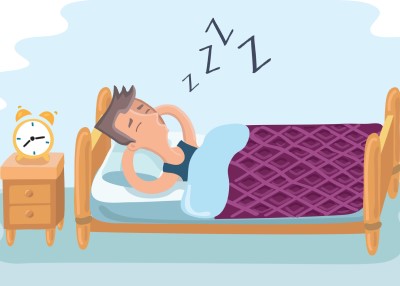
1) Get more sleep
This one is pretty obvious but had to be at the top of list. It’s likely you’re not getting enough quality sleep given one in three people struggle with insomnia and start the day off fatigued.
For that reason, it’s by far the biggest thing you can do.
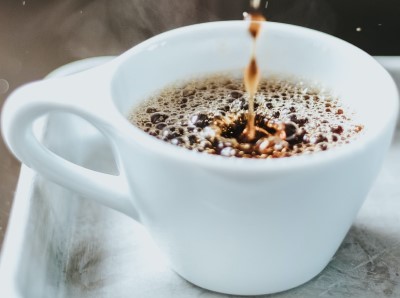
2) Take a coffee break
A delicious cup of your favorite brew is one of the oldest remedies to fight fatigue and promote mental alertness.
Like anything, it’s important not to overdo it. Too much coffee can dehydrate you, make it harder to stay fall asleep at night, and lead to coffee addiction.

3) Sneak in a power nap
A quick snoozer can do wonders if it’s workable for your situation. You can try sneaking in a nap before work, during a break, or over lunch. If it’s not doable in your work area, relocate to your car.
Sleep experts recommend you keep your naps under 15-20 minutes so you don’t wake up in a brain fog. You also don’t want to be late returning back to work, so set an alarm.

4) Talk a walk
Getting the heart rate up and the blood flowing can raise your energy. If pressed for time, try a 10 minute walk.

5) Get up and move around
Sitting still or standing for long stretches can make you feel tired. It’s also not best for you ergonomically.
Get up and take breaks to move your body every few hours.

6) Drink water
Fatigue can be a symptom of dehydration and dehydration can make it more difficult to concentrate. As a healthier alternative to caffeine in the afternoon, try a glass of water.
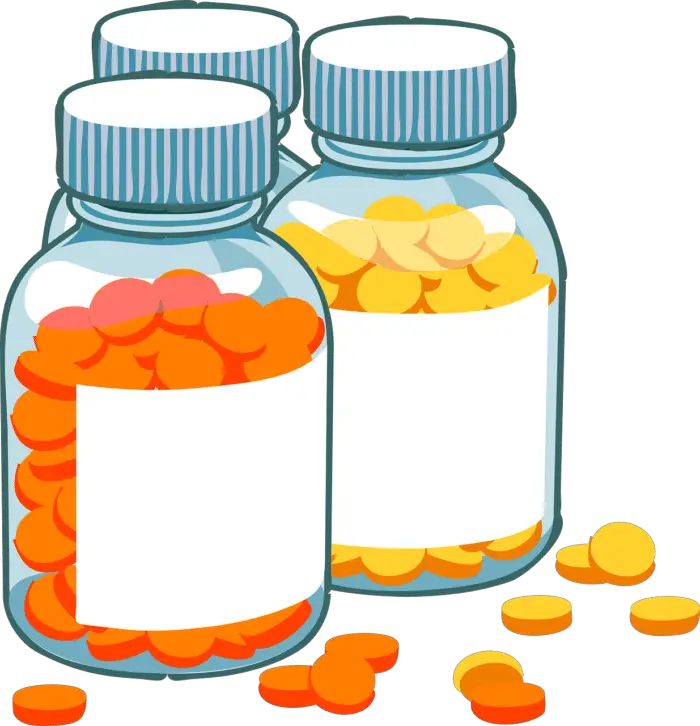
7) Take vitamins
Vitamins are one way to boost energy, especially if you’re not regularly eating a well-balanced diet.
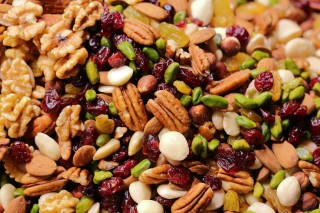
8) Keep a stash of healthy snacks
Healthy snacks can help keep your blood sugar and energy levels steady while at work. Avoid over sugary snacks that lead an energy crash hours later.
Instead, look for foods with a mix of protein, complex carbs, and healthy fats such as:
- trail mix
- hard boiled eggs
- fruit and nuts
- seeds
- raisins and peanuts
- fruit and peanut butter
- veggies and humus
- Greek yogurt
- beef jerky (without the added sugar)
- popcorn
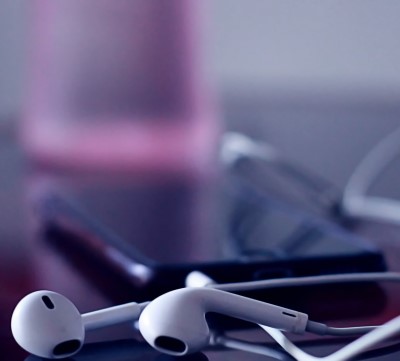
9) Music
The right music can be energizing and help you make it through a lull in the day.

10) Avoid computer fatigue
Staring at a computer screen for hours on end can strain your eyes and be tiring. Be sure to take regular breaks.
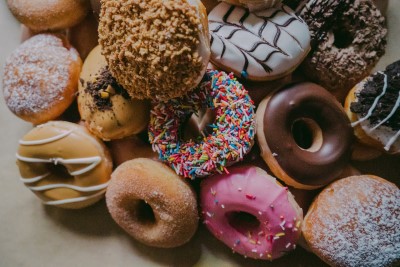
11) Watch the sugar!
Too much sugar can lead to blood sugar spikes, energy crashes, and leave you drowsy.

12) Mix things up!
Doing the same thing for long stretches can sometimes lull you to sleep, especially if you show up to work behind the eight ball on sleep and you’re doing something monotonous.
Try adding variety to the tasks of the day.

13) Try a change of scenery
Look at the same thing every day can be monotonous. Switching to a new setting can sometimes be energizing.
Try taking your work to a lounge, conference room, or outdoor setting.
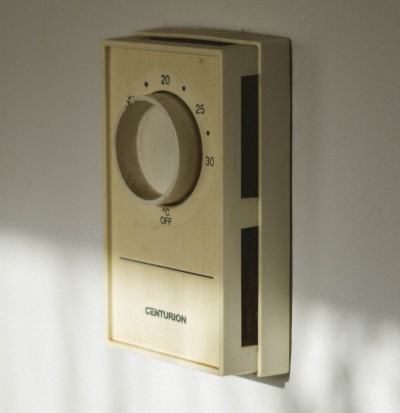
14) Keep your work space cool
A warm room can lull you to sleep, especially after lunch. Try a cooler room temperature or cracking a window.

15) Adjust your lighting
Working in a dim low-light room can also lull you to sleep. Try brightening up your work area with a lamp or with natural daylight through the windows.
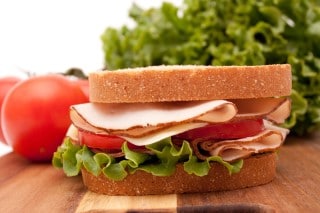
16) Eat lighter meals
Heavy meals can slow down your metabolism and make you feel sluggish. Try eating lighter meals at lunch.
Caffeine-free alternatives worth a try to keep you from falling asleep at work
A quick cup of coffee or tea can do wonders if you’re struggling to stay awake at work. However, too much of anything can become a bad thing.
As you load up on double expressos to make it through the afternoon, it can come back to bite you later at night and keep you from falling asleep. Also, there’s the very real risk of caffeine addiction which can lead to withdrawal symptoms.
Good news is that there are plenty of caffeine-free alternatives worth a try.
I’ve already mentioned plain water, but there are others worth checking out:

1) Sparkling water:
It gives you pop and fizz without the caffeine or sugar.

2) Flavored sparking water:
You can find fizzy water flavored with lime, strawberry, and many other flavors. You can also just add slices of your favorite fruit to a glass of fizzy water.
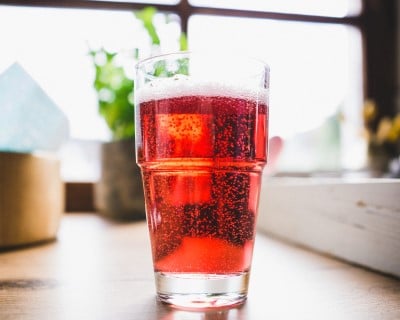
3) Sparkling water with juice :
Add your favorite fruit juice to fizzy water for something that may also help satisfy your sweet tooth. Make sure you use juice with no added sugar.

4) Coconut water:
A popular drink with natural vitamins and electrolytes.

5) Ginger root tea:
Ginger root has been linked to many health benefits. It’s believed to fight fatigue by improving blood circulation and blood sugar levels.

6) Chicory Coffee:
Available online and made from roasted roots of the chicory plant, it tastes similar to coffee but is caffeine free.

7) Golden Milk (Turmeric Tea):
Golden milk is a traditional Indian drink made with warm milk, ginger, cinnamon, turmeric, black pepper. Vanilla and honey is often added for a little extra flavor.
Learn more:
Golden milk recipe (easy)
Golden milk recipe (fresh turmeric root)

8) Rooibos Tea:
Slightly sweet and caffeine free, Rooibos tea is made from leaves of a shrub native to South Africa.
Don’t overlook these underlying issues if you’re falling asleep at work
Tried simple fixes and you’re still struggling to stay awake at work? There may be some underlying issues you need to deal with especially if your day time tiredness has become a major problem
If you don’t deal with the underlying issues, you may be just sticking a band aid on things. They’ll keep you from being as well rested as you could which will only make things harder than they need to be.
Poor sleep hygiene:
There’s a long list of things that can cause problems for sleep. This makes it important to practice good sleep hygiene, the everyday habits that set the stage for deep restful sleep.
For better sleep hygiene, you should:
- keep consistent wake up & sleep times
- avoid naps
- exercise during the day
- avoid large meals, alcohol, or stimulants such as caffeine before bedtime
- maintain a regular bedtime routine
- avoid using TVs, laptops, or other electronics before sleep
- keep your bedroom dark, cool, quiet, & relaxing
Sleep disorders:
If poor sleep has become a fact of life for you, you may be suffering from a sleep disorder. In the US alone, this is the case for 50-70 million adults.
There are many different types of sleep disorders, some more common than others. They range from chronic insomnia to sleep apnea.
If you suspect you have a sleep disorder, your doctor can refer you to a sleep specialist.
Shift work disorder:
Speaking of sleep disorders, working nontraditional hours such as on an evening, night, or rotating shift is a common cause for fatigue on the job. It’s just hard to keep your natural sleep clock on schedule when your sleeping at odd hours and out of sync with the sun.
Health issues:
One of the reasons you could be struggling to stay awake at work is because of health issues.
First, there’s the things that can directly cause day time fatigue:
- anemia (iron deficiency)
- underactive thyroid
- coeliac disease
- chronic fatigue syndrome
- diabetes
- too much calcium in your blood (hypercalcemia)
- infections
And then there’s the things that could be making it harder for you to get quality rest. Most people aren’t aware of how many different things are linked to poor sleep.
The list includes chronic pain, heartburn, heart disease, diabetes, cancer, dementia, and asthma.
A doctor can check for underlying health issues..
Mental health challenges:
Stress, anxiety, and depression can leave you feeling drained. They are also linked to poor sleep.
And it turns out that people who sleep poorly are more at risk for stress, anxiety, and depression. If you’re not careful, you can get in a vicious cycle where more of one leads to more of the other.
A type of counseling known as cognitive behavioral therapy (CBT) has been found to be effective for both anxiety and depression. It focuses on changing thinking and behavioral patterns.
Medications:
Some commonly used medications can make it harder to stay awake
Among the medications known to cause drowsiness are:
- antihistamines
- allergy meds
- anti-psychotics
- antidepressants
- anxiety meds
- muscle relaxants
- antidepressants
- heart meds
- prescription pain meds
You may also be interested in:
Sources:
1. “Workplace Fatigue Statistics and its Staggering Costs”, 2020, ErgonomicTrends.com
2. “Sleeping at Work”, 2020, Amerisleep.com
3. “Talking Points”, World Sleep Society website
4. “Driver Fatigue: The Dangers Of Drowsy Truckers”, Rayneslaw.com
5. Excessive Daytime Sleepiness, Am Fam Physician. 2009 Mar 1;79(5):391-396.
6. “7 Medications That Can Make You Tired”, 2020, goodrx.com
7. “What causes fatigue, and how can I treat it?”, medicalnewstoday.com
8. “Some phytochemical, pharmacological and toxicological properties of ginger (Zingiber officinale Roscoe): a review of recent research”, Food Chem Toxicol. 2008 Feb;46(2):409-20.
9. “Sleep and Sleep Disorder Statistics”, American Sleep
Connect with us:
About Us
Better Sleep Simplified® was founded as a place for you to get clear and well-researched information.
Our goal is to make sure you know about your options so that you take action sooner rather than later.
Check us out on YouTube:
Watch and Learn
Helpful sleep tips, interesting sleep facts and statistics you want to know about
Affiliate Disclosure
This site is a participant in the Amazon Services LLC Associates Program and other affiliate advertising programs designed to provide a means for sites to earn advertising fees by advertising and linking to them.
Important: BetterSleepSimplified.com is for informational purposes only and is not intended or implied to be a substitute for professional medical advice, diagnosis, or treatment. Always consult a physician for sleep and health concerns. See additional information.


